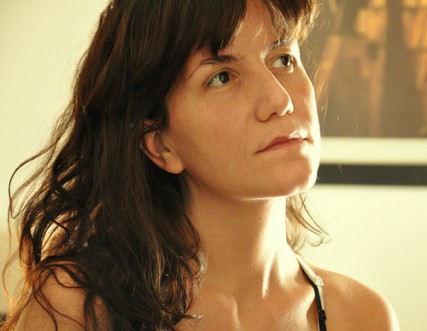
Big green eyes beamed from her almond-shaped face. Tall, she could command a presence beyond her 24 years. Her appearance drew the attention of the males in the room — something she was experienced with — male attention. Her beauty was the kind that boys and men dream of. She had graduated with a master’s degree after receiving a full-ride for her undergraduate degree in finance at an Ivy League school. A new position with a multinational corporation awaited her in Argentina. Healthy, beautiful and full of promise with a secure future, she seemed to live a charmed life. Yet, she stood before us admitting that she was repulsed by her own life.
I met her while taking a self-improvement seminar in Phoenix. We were all there to find the answer to our own brokenness. The funny thing was that most of us would all be called “successful” by the world — far from broken. She was not much different from most of the group taking the course. Most were successful in their own right — well-educated and prosperous, small business owners, Olympic athletes, pastors and professionals. The course members were looking to increase their effectiveness and get more out of life. Or, so we said to each other.
Then we got real and authentic with each other, with some pushing from the seminar leader, and discovered that each of us felt as if our lives were broken — unresolved conflicts with our parents, feeling like we going down the ski slope, but only in a tumble down the snow and ice. Life seemed like it did not to belong to us, but we felt thrown into the deep end of life and some of us felt as if we were drowning.
All far short of the glory of God, Paul tells us in Romans.
The seminar leader did offer some amazing stuff: Acknowledge your weakness and be real with each other (Christian confession). Stop blaming others, especially your parents for your own failings (honor your father and mother). Clean up your relationships and own up to where you failed (seek forgiveness and reconciliation).
Though the course was secular, it offered recognizable Christian wisdom, wisdom that has been forgotten in the rush to market the Gospel. We fill the churches, but offer nothing that brings us life — or changes our life. We offer the church as a product, but forget that all we can offer the world is Jesus and the world will think the cross of Jesus to be foolish or a stumbling block. If we look to market the Gospel, we cut out the heart of it.
Many of the people that went through the course had a change of heart and began to experience a deeper life. But for many of them, it did not last. I think the reason was because for them Jesus was the missing piece. Many people have been asking about the brokenness of the church and the direction of the church.
Daryl Geffken has written a series of comprehensive posts that offer a good analysis of the challenges facing the church. My only point would be that we need to return to Jesus and be authentic to our own brokenness. We need to drop the pretense of being “better than …” and embrace our need of the cross. Without Jesus, our lives will become repulsive to followers of Jesus, despite any amount of success, fame or effectiveness our lives achieve.






